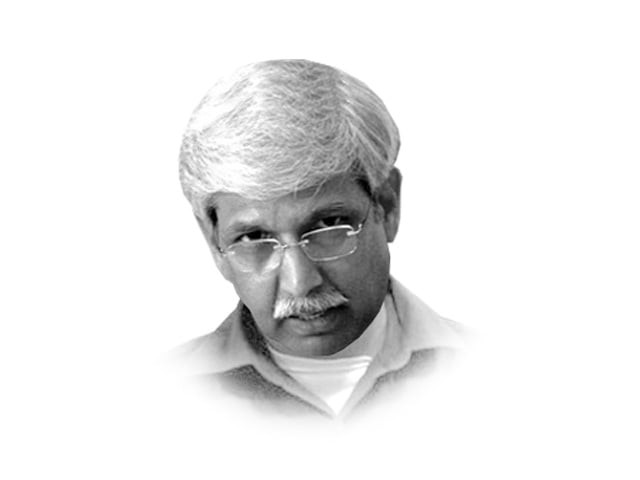In search of liberalism
Is being westernised liberalism? If so, do the liberals wish to colour Pakistan’s social landscape in western colours?

The dilemma of Pakistani society lies in its transitory nature. It may have a lot to do with the Ziaul Haq period, in the manner which religious laws were forced onto people. However, most of it came around in the closing days of Bhutto’s regime when an overtly rightist PNA (Pakistan National Alliance) movement challenged his dominating leftist philosophy. For political convenience, significant space was ceded to the right and there has been no looking back; this despite the fact that in most cases the political dispensations were a centrist mix and did not share much with the right. The same thing happened under Musharraf, as a matter of convenience, despite his largely progressive credentials.
What has remained amiss in Pakistan’s political landscape is the enunciation of clear political philosophies of each of the main political players. Other than the politico-religious parties, who understandably remain right of the spectrum, only the ANP and the MQM can claim leftist political leanings, if not secular and, therefore, stand clear in their political ideologies. Others wish to play on both sides of the spectrum for political expedience, giving space to competing leanings. In the absence of clearly identifiable political philosophies, the electorate remains stuck in its traditional preferences and voting patterns, without ever realising the inherent democratic dividend of claiming a share in shaping the evolving nature of the society. Hence, we remain an ideologically confused nation.
Relative western-ism in Pakistani society is more a product of selective prosperity among a few who don progressive colours without having fomented the essential internalisation process and developed clear political beliefs. They remain largely untrained because of the absence of a guiding liberal political dispensation and tend to project only an externalised dimension of what may be popular to their acquired creed. A popular resort is to be seen fighting for democracy. Democracy is not a western phenomenon alone and neither is it the sole repertoire of liberalism. In Pakistan though, democratic struggles, more so in the backdrop of frequent military interventions, have come to be recognised as the predominant underpinnings of progressive, liberal approaches. Pakistani society remains a traditional society with large segments stunted in social mobility, increasingly overwhelmed with the odds of eking a survival. In such modes of existence, political philosophies remain the realm of the privileged few.
As political and social scientists will, however, tell us, it is possible for a society to remain socially neutral with resident conservative values while being politically liberal. In the Pakistani context, this will mean accepting the fact that religiosity resides in the make-up of the society, and not in necessarily fighting to dislodge it. Religion in the Pakistani societal experience, till the extremist strand took hold, was never retrogressive in social and cultural terms.
Overt aversion of religion, other than of the extreme type, is a failing recipe for liberalist credentials in the current environment. It must find a broader politico-economic meaning. A Pakistani liberal must not restrict himself to social liberalism alone, nor attempt to impose labels on types of thinking. Instead, an inclusive plural context, coexisting in a socially neutral environment, will be a good pedestal to stand on before popular emancipation can be realised. A political leadership committed towards such modalities of evolution remains paramount before we can claim liberalism as a prominent socio-political theme.
Published in The Express Tribune, January 12th, 2011.













COMMENTS
Comments are moderated and generally will be posted if they are on-topic and not abusive.
For more information, please see our Comments FAQ